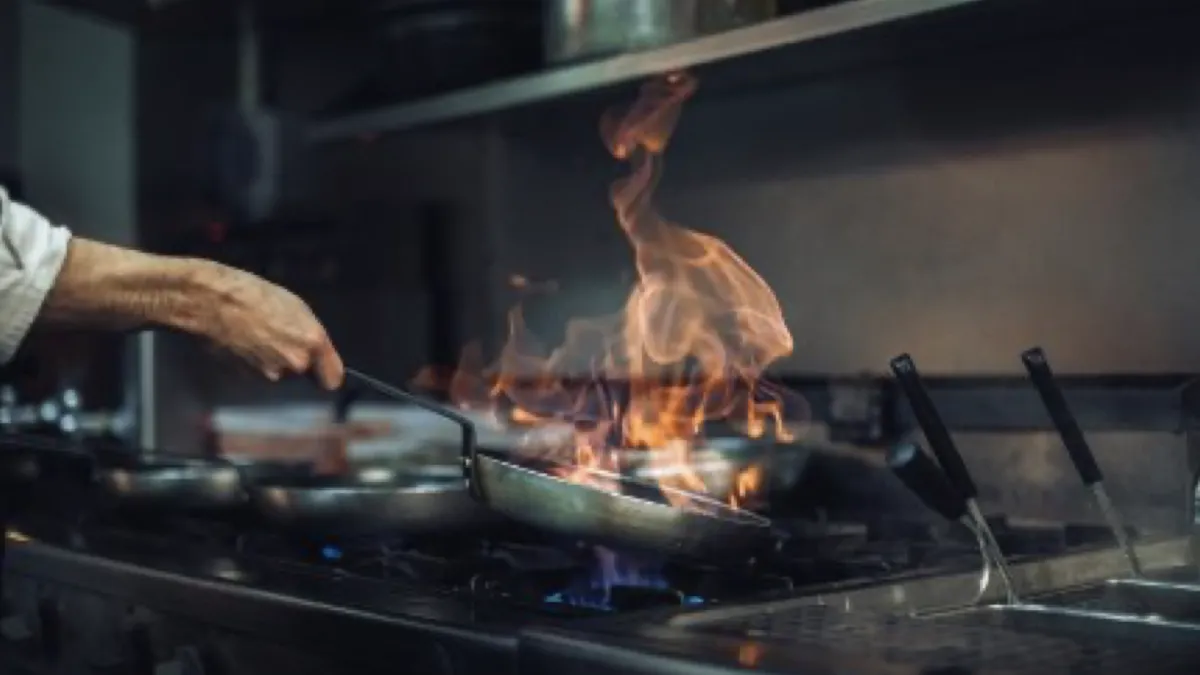
The Kitchen Survival Guide: Your First-Timer's Handbook to Staying Safe While Cooking
The Golden Rules of Kitchen Safety
Welcome to your first kitchen! Now that you're out on your own, cooking can be a fun and rewarding way to eat well and save money. But before you start whipping up culinary masterpieces, let's talk about the most important ingredient: safety. This guide will help you navigate your new kitchen with confidence, avoiding common mistakes and potential hazards.
Kitchen Safety Guide
Don't Let Your Guard Down. Cooking is a hands-on activity. Avoid distractions like your phone, TV, or a great conversation when you have something on the stove. A quick glance away can lead to a spill, a burn, or worse.
Fire Is Fast. Be Faster.
Keep a fire extinguisher handy. And know how to use it! Make sure it's rated for kitchen fires (Class K or BC).
Never leave a pan with hot oil unattended. If it starts to smoke, turn off the heat and let it cool down. If it catches fire, use a lid to smother the flames. NEVER use water on a grease fire.
Keep flammable items away from the stove. That includes paper towels, oven mitts, and dishcloths.
If you have a stovetop fire, turn off the heat and cover the pan with a lid. This cuts off the oxygen and puts the fire out.
Knives Are Your Friends, But They Demand Respect.
A sharp knife is a safe knife. A dull knife requires more force and is more likely to slip and cut you.
Always cut away from yourself. Keep your fingers curled under like a claw when you're chopping vegetables.
Don't try to catch a falling knife. Step back and let it drop. You can replace a knife; you can't replace a finger.
Wash knives separately. Don't just toss them in a sink full of soapy water where you might grab them by mistake.
Watch Out for Burns!
Always use oven mitts or pot holders. Even if something doesn't look hot, it can be.
Steam is sneaky and can cause a serious burn. Lift pot lids away from you, so the steam escapes in the opposite direction.
Be careful with hot oil and water. Spills can happen quickly and can cause painful burns.
Clean as You Go.
Wipe up spills immediately. A slippery floor is an accident waiting to happen.
Keep your counters and stovetop clean. This prevents the spread of germs and also reduces the risk of fire.
What to Do in an Emergency
A Small Kitchen Fire:
Stay calm.
If it's a pan fire, turn off the heat and smother it with a lid.
If it's in the oven, turn off the oven and keep the door closed.
Use your fire extinguisher if necessary. Aim at the base of the flames.
If a fire gets out of control:
Yell "Fire!" to alert anyone else in the house.
Evacuate immediately.
Call 911 from a safe location.
For Minor Burns:
Run the affected area under cool (not cold) water for at least 10-15 minutes.
Don't apply ice, butter, or any other home remedies.
If the burn is blistering, deep, or larger than a quarter, seek medical attention.
By keeping these tips in mind, you'll be well on your way to becoming a confident and safe cook. Happy cooking!
Tired of Takeout? Stop wasting money and start cooking with confidence. Get The Adulting Blueprint: Kitchen Level-Up Kit today!
Return to Adulting Playbook home or Adulting 101 course.